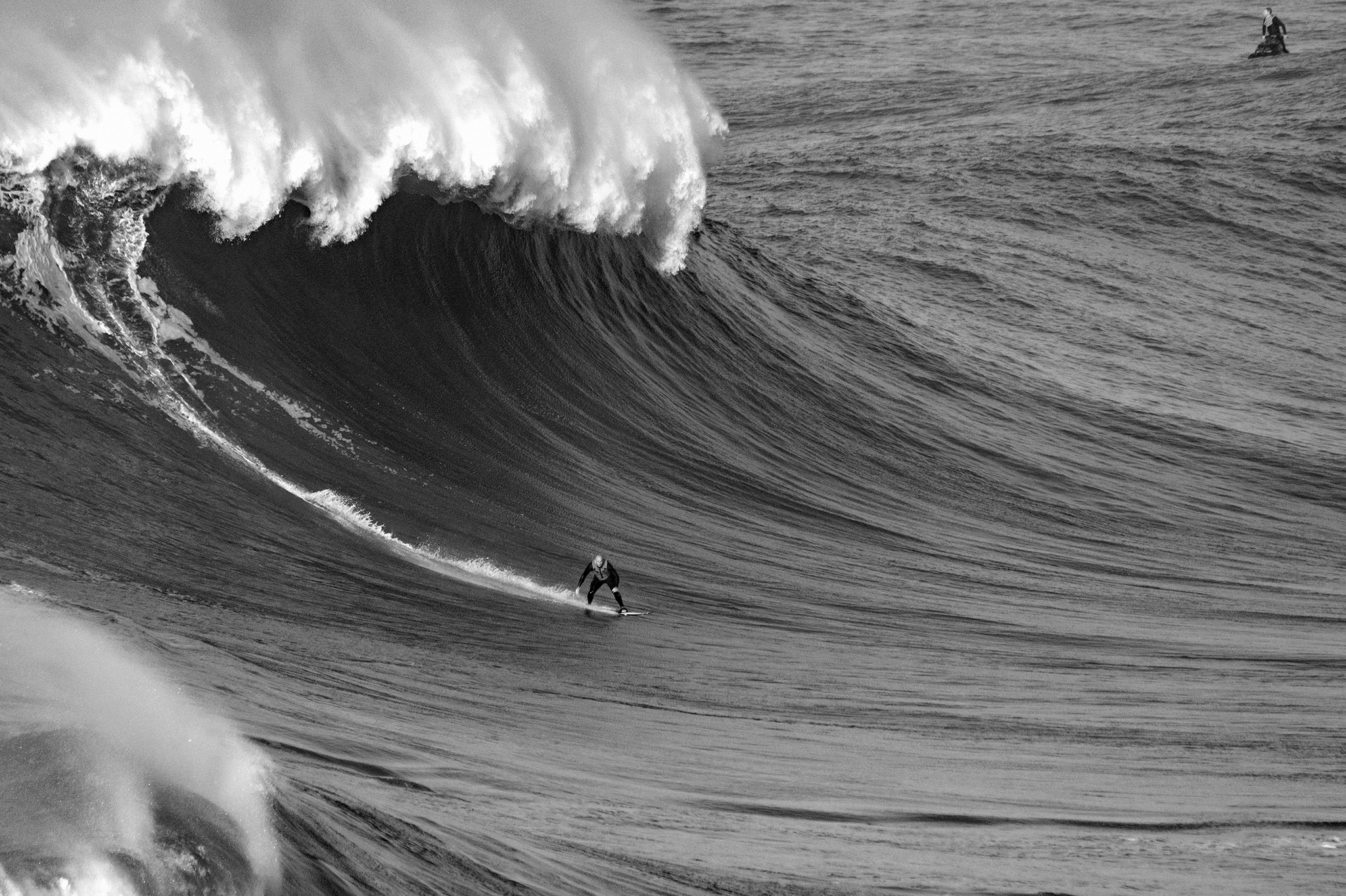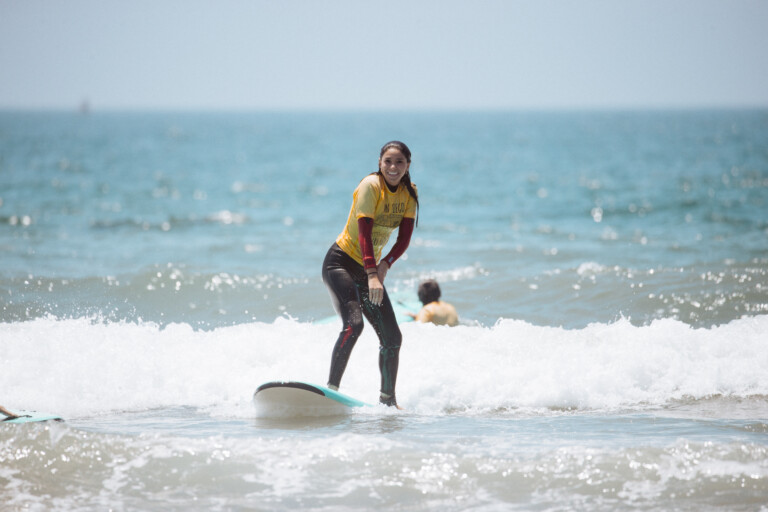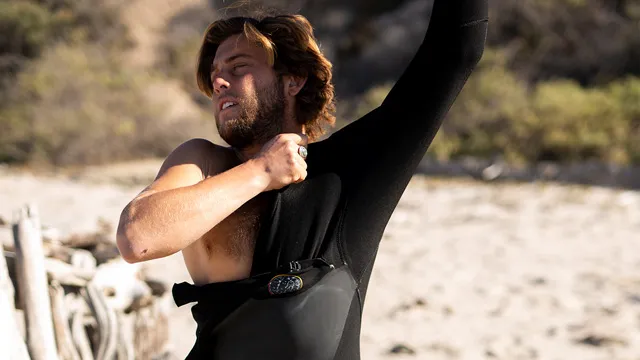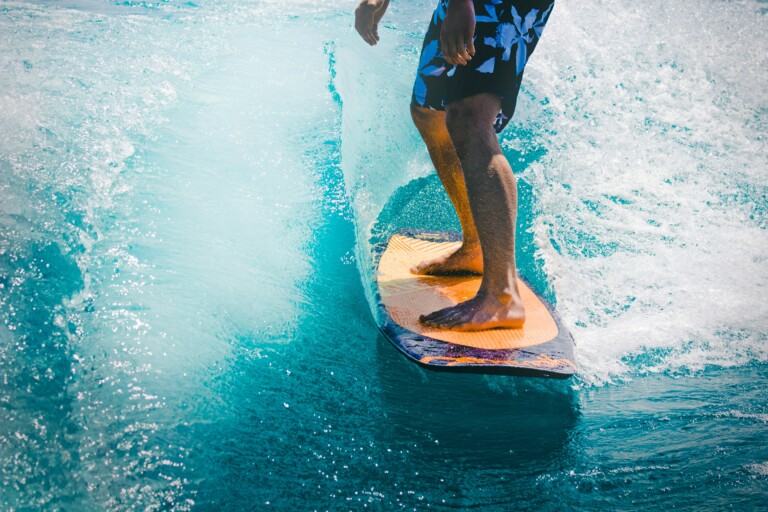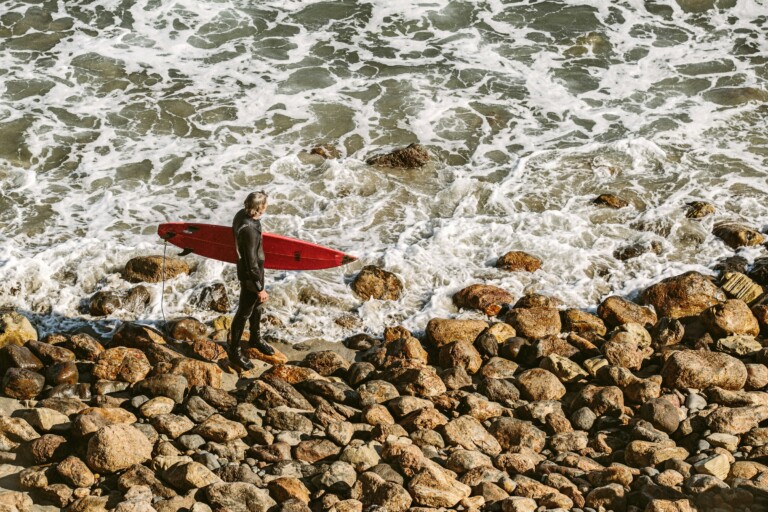Surfing is an exhilarating water sport that offers a unique connection with the ocean. Before heading out to catch some waves, it’s essential to consider safety, environmental impact, and overall enjoyment. Here are some key considerations for surfing.
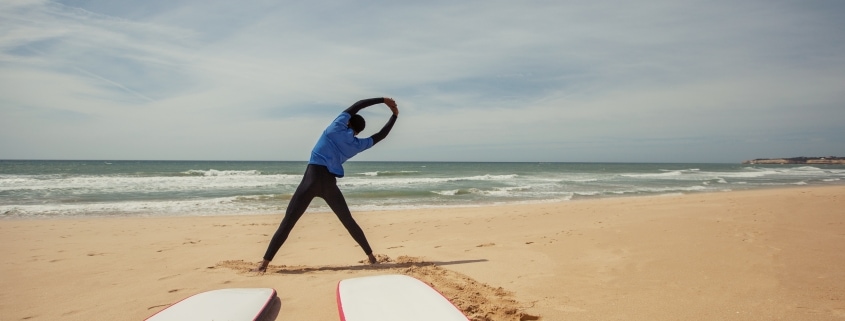
Preparation:
- Safety First: Surfing can be physically demanding and requires a certain level of swimming ability. Ensure you are comfortable in the water and have the necessary swimming skills. Always surf within your ability and avoid taking unnecessary risks. Familiarize yourself with the local surf conditions, tides, and weather forecasts. Consider taking lessons from a qualified instructor if you’re a beginner.
- Appropriate Equipment: Having the right equipment is crucial for a successful surfing experience. The main equipment includes a surfboard and a leash. Choose a board suitable for your skill level, weight, and the type of waves you’ll be surfing. A longer, more stable board is generally recommended for beginners, while experienced surfers may opt for shorter, more maneuverable boards. Visit sandiegosurfingschool.com/pages/faq to find out what you should bring to surfing.
- Wetsuit and Sun Protection: Depending on the water and air temperatures, you might need a wetsuit to keep you warm. Also, remember to apply sunscreen to protect your skin from the sun’s harmful rays, even on overcast days.
- Physical Fitness: Surfing requires a good level of physical fitness, as paddling, balancing, and navigating through waves can be strenuous. Regular exercise and staying in shape will enhance your surfing experience.
- Emergency Preparedness: In case of an emergency, always have a plan. Know the location of the nearest medical facilities and have a basic understanding of first aid. Carry a communication device, such as a waterproof phone case, to call for help if necessary.

While you’re out there:
- Respect the Ocean: The ocean is a powerful and unpredictable force. Always respect the sea and its natural elements. Be aware of rip currents, undertows, and potential hazards in the water. Avoid surfing in areas with dangerous wildlife, such as shark-infested waters. Also, be mindful of other water users, such as swimmers, kayakers, and other surfers.
- Environmental Impact: Surfers should strive to be environmentally conscious and minimize their impact on the ocean and coastal ecosystems. Avoid leaving trash behind, use eco-friendly surf wax, and support sustainable surfing practices. Be mindful of marine life and give them space while in the water.
- Surf Etiquette: Surfing has a set of unwritten rules and etiquette that every surfer should follow. Respect the lineup and wait your turn for waves. Don’t drop in on someone else’s wave, and avoid hogging all the waves in a crowded area. Be friendly and respectful to other surfers and beachgoers.
- Know Your Limits: Surfing can be incredibly fun, but it’s essential to recognize your limits and take breaks when needed. Avoid surfing in conditions that exceed your skill level or comfort zone.
- Enjoy the Experience: Most importantly, enjoy the experience! Surfing is not just about catching waves; it’s about connecting with nature and the ocean. Embrace the learning process and the joy of riding waves.
By considering these factors, you’ll be better prepared to have a safe and enjoyable time while surfing. Always remember to have fun and respect the natural environment you are privileged to enjoy! If you’re ever unsure about anything, give us a call and we’re here to help you out! sandiegosurfingschool.com This will all help you understand your considerations for surfing.






